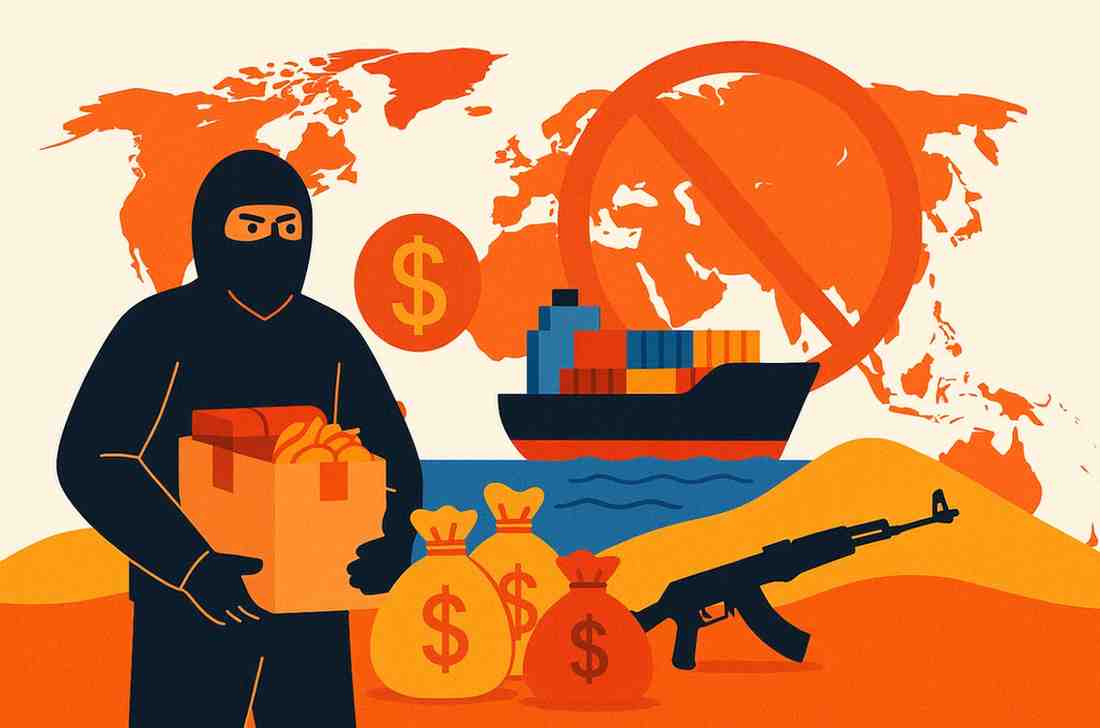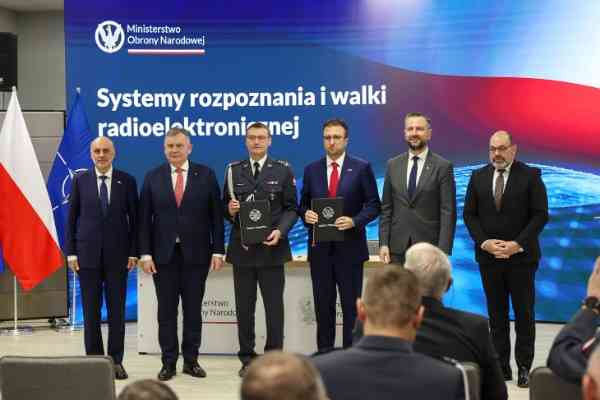According to an official statement by the United Nations Office on Drugs and Crime in 2009, the annual turnover accompanied by transnational Organized criminal activities is estimated at around $870 billion, which equates to 1.5% of global GDP. Such activities include illegal arms trade, counterfeiting, smuggling, and drugs, humans, and firearms trafficking. Since the era of economic liberalism began, the world economy has undergone a significant shift. Economic liberalism promised prosperity and economic success by opening trade routes, promoting free trade, and applying a laissez-faire economic approach. While liberalization has reduced tariffs and subsidies, increased trade, and boosted commerce, it has also produced loopholes in the global supply chains. With the absence of protectionist policies under economic liberalization, the sharing of goods and services is encouraged, ultimately facilitating more porous borders, increased imports, and an overreliance on the global supply chain. This has raised security concerns regarding the goods. Criminal organizations exploit these for their own gains.
While Mexico is well known for its cartels and transnational criminal activities, and the United States remains the largest consumer of illicit drugs, Asia is rapidly becoming a hub of transnational crime, particularly due to its location. Asia’s strategic location facilitates international trade, making it a significant region in the global supply chain. China’s Belt and Road Initiative, South Asia’s maritime trade routes, and Asia-Pacific shipping lanes serve as critical routes of global supply chains. Countries that serve as essential nodes in worldwide shipping and supply chains tend to have a high rate of illicit economic activities. Since most of these countries are still developing, addressing such activities has become a growing liability. Additionally, the creation of trade areas such as Free Trade Zones (FTZ) and Special Economic Zones (SEZ) further expands the avenues vulnerable to illicit activities. Free Trade Agreements facilitate the free and easy flow of goods and services by eliminating or reducing trade barriers, such as tariffs or quotas.The Areas where such agreements are enforced are called Free Trade Zones, whereas SEZs are the geographical areas with special laws and rules that might differ from the universal rules of trade and commerce. While facilitating trade and providing particular benefits to developing countries, such areas become a magnet for smuggling and exploitation.
The Port of Singapore, situated near the Strait of Malacca, is a central hub for global trade, with approximately 27.9% of international maritime trade passing through it. Due to heavily trafficked trade arteries and a large quantity of goods, the checking and inspection rates are low, and security is overlooked, paving the way for contraband to flow through. Similarly, the Golden Triangle SEZ in Laos operates with lax oversight. The inadequate regulatory supervision leads to drug, human, and wildlife trafficking, money laundering, and fraud. Two areas have particularly emerged as hotspots: Bokeo Province in Laos and Myanmar’s Shan State, specifically the district east of the Salween River, bordering China, Laos, and Thailand. Created as a tourism and investment hub in 2007, it quickly fell prey to nearly all types of illicit activities, such as unregulated Casinos, drug production and trafficking, illegal wildlife trade, money laundering, and scamming operations. South Asia is equally affected in this regard; the Global Crescent Special Economic zone, among Iran, Afghanistan, and Pakistan, serves as a hub of trafficking routes. Gwadar port of Pakistan, as part of CPEC, is viewed both as a strategic trading hub and a vulnerable spot for illicit activities. ASEAN hosts some of the most trade-liberalized economies in the world, most of which have introduced vulnerabilities in the ASEAN supply chain, giving rise to a shadow supply chain. Where the elimination of 98.6% of tariffs across ASEAN enhances trade efficiency, a 60% increase in non-tariff measures has created exploitable legal loopholes. These loopholes provide opportunities for organized criminal networks to infiltrate, especially in extensively used areas such as tobacco, counterfeit pharmaceuticals, and natural resources.
Estimates from the UN indicate that around $1.6 trillion, or 2.7% of global GDP, is laundered annually, while the World Bank reports that $1 trillion per year is spent on bribes to public officials. Such illicit trade erodes the tax revenues of the countries, threatens the security and economic stability, and damages legitimate businesses by providing unfair competition. Beyond the financial impact, it undermines a country’s socio-cultural fabric through the depletion of national resources, threatening cultural heritage and environmental sustainability. Transnational criminal organizations and networks exploit weak governance and security systems to generate enormous profit margins.
Trade liberalization aimed to advance trade and commerce and provide potential benefits to developing countries. However, due to weak governance, poor enforcement and regulatory mechanisms, corrupt officials, porous borders, and limited monitoring of trade zones, many countries are unable to mitigate these activities. Furthermore, advancements in technology, such as cybercrime, cryptocurrencies, and encrypted channels, facilitate illicit activity while making it hard to track them. Inflation, poverty, and instability drive commodities into illicit economies, as these individuals often prefer cheap goods, regardless of how they are acquired. Apart from economic damage, it also jeopardizes human security. Firearm trafficking is becoming increasingly prevalent as it results in loss of lives and fuels armed uprisings and insurgencies.
Despite providing economic benefits, especially for developing and Least Developed Countries, economic liberalization has created opportunities for underworld activities and illicit crimes, both of which escalate with time. The foremost and necessary step is to strengthen enforcement and regulatory mechanisms in such hotspots by implementing stricter border control measures, improving transparency in trade documentation, and imposing strict penalties for violations. However, achieving this requires the government to consolidate its power and institutional capacity; otherwise, the loss of lives will escalate as national economies crumble into ruins.
Table of Contents
Toggle











